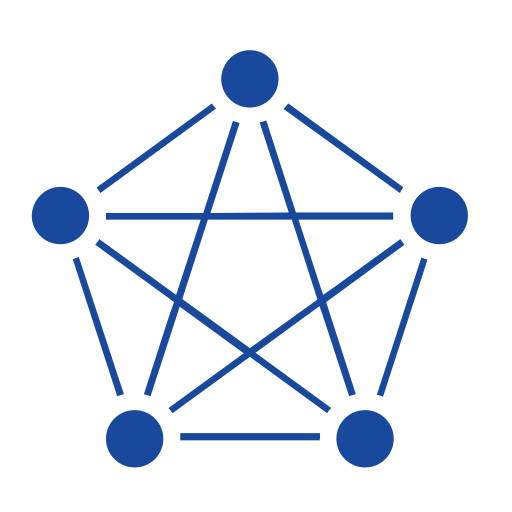TDengine vs VictoriaMetrics
A detailed comparison
Compare TDengine and VictoriaMetrics for time series and OLAP workloads
Learn About Time Series DatabasesChoosing the right database is a critical choice when building any software application. All databases have different strengths and weaknesses when it comes to performance, so deciding which database has the most benefits and the most minor downsides for your specific use case and data model is an important decision. Below you will find an overview of the key concepts, architecture, features, use cases, and pricing models of TDengine and VictoriaMetrics so you can quickly see how they compare against each other.
The primary purpose of this article is to compare how TDengine and VictoriaMetrics perform for workloads involving time series data, not for all possible use cases. Time series data typically presents a unique challenge in terms of database performance. This is due to the high volume of data being written and the query patterns to access that data. This article doesn’t intend to make the case for which database is better; it simply provides an overview of each database so you can make an informed decision.
TDengine vs VictoriaMetrics Breakdown
 |
 |
|
| Database Model | Time series database |
Time series database |
| Architecture | TDengine can be deployed on-premises, in the cloud, or as a hybrid solution, allowing flexibility in deployment and management. |
VictoriaMetrics can be deployed as a single-node instance for small-scale applications or as a clustered setup for large-scale applications, offering horizontal scalability and replication. |
| License | AGPL 3.0 |
Apache 2.0 |
| Use Cases | IoT data storage, industrial monitoring, smart energy, smart home, monitoring and observability |
Monitoring, observability, IoT, real-time analytics, DevOps, application performance monitoring |
| Scalability | Horizontally scalable with clustering and built-in load balancing. TDengine also provides decoupled compute and storage as well as object storage support for data tiering in some versions |
Horizontally scalable, supports clustering and replication for high availability and performance |
Looking for the most efficient way to get started?
Whether you are looking for cost savings, lower management overhead, or open source, InfluxDB can help.
TDengine Overview
TDengine is a high-performance, open source time series database designed to handle massive amounts of time series data efficiently. It was created by TAOS Data in 2017 and is specifically designed for Internet of Things (IoT), Industrial IoT, and IT infrastructure monitoring use cases. TDengine has a unique hybrid architecture that combines the advantages of both relational and NoSQL databases, providing high performance, easy-to-use SQL for querying, and flexible data modeling capabilities.
VictoriaMetrics Overview
VictoriaMetrics is an open source time series database developed by the company VictoriaMetrics. The database aims to assist individuals and organizations in addressing their big data challenges by providing state-of-the-art monitoring and observability solutions. VictoriaMetrics is designed to be a fast, cost-effective, and scalable monitoring solution and time series database.
TDengine for Time Series Data
TDengine is designed from the ground up as a time series database, so it will be a good fit for most use cases that heavily involve storing and analyzing time series data.
VictoriaMetrics for Time Series Data
VictoriaMetrics is designed for time series data, making it a solid choice for applications that involve the storage and analysis of time-stamped data. It provides high-performance storage and retrieval capabilities, enabling efficient handling of large volumes of time series data.
TDengine Key Concepts
- Super Table: A template for creating multiple tables with the same schema. It’s similar to the concept of table inheritance in some other databases.
- Sub Table: A table created based on a Super Table, inheriting its schema. Sub Tables can have additional tags for categorization and querying purposes.
- Tag: A metadata attribute used to categorize and filter Sub Tables in a Super Table. Tags are indexed and optimized for efficient querying.
VictoriaMetrics Key Concepts
- Time Series: VictoriaMetrics stores data in the form of time series, which are sequences of data points indexed by time.
- Metric: A metric represents a specific measurement or observation that is tracked over time.
- Tag: Tags are key-value pairs associated with a time series and are used for filtering and grouping data.
- Field: Fields contain the actual data values associated with a time series.
- Query Language: VictoriaMetrics supports its own query language, which allows users to retrieve and analyze time series data based on specific criteria.
TDengine Architecture
TDengine uses a cloud native architecture that combines the advantages of relational databases (support for SQL querying) and NoSQL databases (scalability and flexibility).
VictoriaMetrics Architecture
VictoriaMetrics is available in two forms: Single-server-VictoriaMetrics and VictoriaMetrics Cluster. The Single-server-VictoriaMetrics is an all-in-one binary that is easy to use and maintain. It vertically scales well and can handle millions of metrics per second. On the other hand, VictoriaMetrics Cluster consists of components that allow for building horizontally scalable clusters, enabling high availability and scalability in demanding environments. The architecture of VictoriaMetrics enables users to choose the deployment option that best suits their needs and scale their database infrastructure as required.
Free Time-Series Database Guide
Get a comprehensive review of alternatives and critical requirements for selecting yours.
TDengine Features
Data ingestion
TDengine supports high-speed data ingestion, with the ability to handle millions of data points per second. It supports batch and individual data insertion.
Data querying
TDengine provides ANSI SQL support with additional that allows users to easily query time series data using familiar SQL syntax. It supports various aggregation functions, filtering, and joins.
Data retention and compression
TDengine automatically compresses data to save storage space and provides data retention policies to automatically delete old data.
VictoriaMetrics Features
High performance
VictoriaMetrics is optimized for high-performance storage and retrieval of time series data. It can efficiently handle millions of metrics per second and offers fast query execution for real-time analysis.
Scalability
The architecture of VictoriaMetrics allows for both vertical and horizontal scalability, enabling users to scale their monitoring and time series database infrastructure as their data volume and demand grow.
Cost-effectiveness
VictoriaMetrics provides a cost-effective solution for managing time series data. Its efficient storage and query capabilities contribute to minimizing operational costs while maintaining high performance.
TDengine Use Cases
IoT data storage and analysis
TDengine is designed to handle massive amounts of time series data generated by IoT devices. Its high-performance ingestion, querying, and storage capabilities make it a suitable choice for IoT data storage and analysis.
Industrial IoT monitoring
TDengine can be used to store and analyze data from industrial IoT sensors and devices, helping organizations monitor equipment performance, detect anomalies, and optimize operations.
Infrastructure Monitoring
TDengine can be used to collect and analyze time series data from IT infrastructure components, such as servers, networks, and applications, facilitating real-time monitoring, alerting, and performance optimization.
VictoriaMetrics Use Cases
Monitoring and Observability
VictoriaMetrics is widely used for monitoring and observability purposes, allowing organizations to collect, store, and analyze metrics and performance data from various systems and applications. It provides the necessary tools and capabilities to track and visualize key performance indicators, troubleshoot issues, and gain insights into system behavior.
IoT Data Management
VictoriaMetrics is suitable for handling large volumes of time series data generated by IoT devices. It can efficiently store and process sensor data, enabling real-time monitoring and analysis of IoT ecosystems. VictoriaMetrics allows for tracking and analyzing data from factories, manufacturing plants, satellites, and other IoT devices.
Capacity Planning
VictoriaMetrics enables retrospective analysis and forecasting of metrics for capacity planning purposes. It allows organizations to analyze historical data, identify patterns and trends, and make informed decisions about resource allocation and future capacity requirements.
TDengine Pricing Model
TDengine is open source and free to use under the AGPLv3 license. TDengine also offers commercial licenses and enterprise support options for organizations that require additional features, support, or compliance with specific licensing requirements.
VictoriaMetrics Pricing Model
VictoriaMetrics is an open source project, which means it is available for free usage and doesn’t require any licensing fees. Users can download the binary releases, Docker images, or source code to set up and deploy VictoriaMetrics without incurring any direct costs. VictoriaMetrics also has paid offerings for on-prem Enterprise products and managed VictoriaMetrics instances.
Get started with InfluxDB for free
InfluxDB Cloud is the fastest way to start storing and analyzing your time series data.
